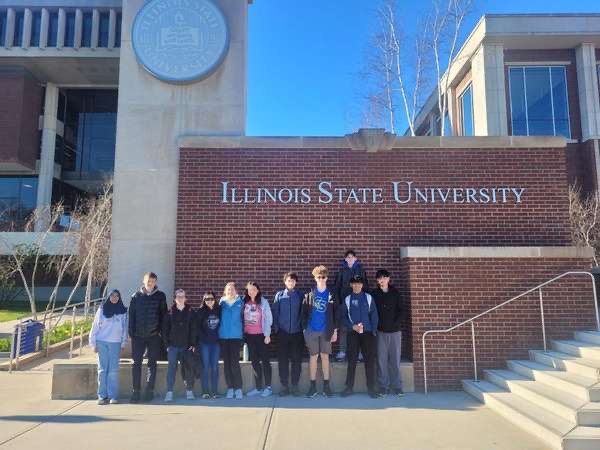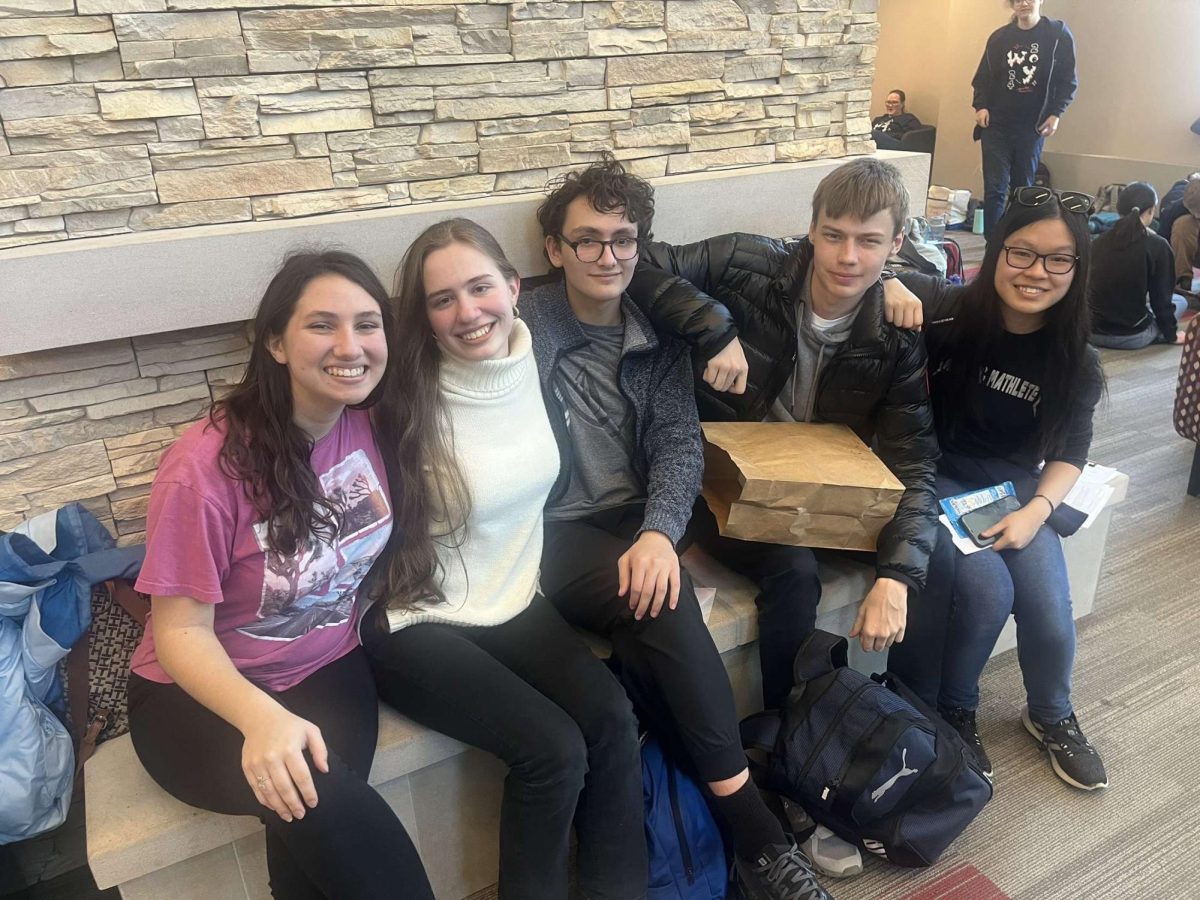Mathletes recently competed in their State competition this April after their entire freshman team qualified. Mr. David Brewczynski, the coach for the freshman and sophomore teams, stated, “We’re hoping to build off of that success that we achieved.”
Mathletes competitions start by assigning two topics to every student level of competition. So, freshmen, sophomores, juniors, and seniors will all have the chance to test their skills by solving problems from their respective math curricula.
Mr. Brewzyncski says, “These topics cycle through a rotation, and are based on the kinds of things that you normally would learn in a traditional high school math curriculum. It’s not like head-to-head competition, so when you go to a competition you’re competing against five to six different schools at a time.”
There are many different events in a Mathletes competition that cover different skill sets within mathematics. Calculator and Geometry state qualifier and CSHS sophomore Jack Henson describes the general procedure of the competition. ”It was an interesting experience because it was down at ISU. We had to get there early in the morning to get to the competition, but it went smoothly. For the state competition, there was a qualifying round, which is a 20-question packet that you are given 15 minutes to solve. It is graded to see who got the highest score. If there’s a tie, then everyone ties for first. If you get a certain score, you qualify for the actual state competition and are given the same type of problems.”

Calculator and 2-Person state qualifier, senior Elizabeth Wazio, describes how the competition works in special events that require more than one teammate to work together on each team. “For the 2-person competition, there will be a screen which will show one question at a time, and you work to get the quickest amount of points with another person. Whoever gets it first will get extra points, and then various points for getting it under a certain time. It’s a speed contest.”
According to Henson, Sandburg placed 35th out of 64 teams during the state competitions. This was a great placement for Sandburg’s team, as Henson notes that “We were competing with private and more competitive schools. [It] was a pretty good turnout for only having fewer members qualify.”
Wazio states, “We did not win, but it was more for the experience. It all depends on the difficulty of the questions and the day.”
Nevertheless, participation in the State competition has brought the Mathletes an impactful and meaningful experience beyond practicing and demonstrating mathematics skills.
Wazio recounts the significant development in her Mathlete experiences from her freshman year, during COVID-19, to her work in the recent State competition. “Freshman year was interesting because it was COVID-19. So, we would come into a gym, do three tests, and walk out. It was very interesting. It wasn’t until sophomore year, that we started doing competitions in other schools and other people and I got to meet people from other schools. Mathletes showed that schools aren’t the only things that keep us together – it’s also our experiences throughout our lives. I spent a half hour talking to this Lincoln Way East kid about colleges, what he got into, what he’s majoring in, and applications. The interconnection between schools and even grade [levels] is nice to see, especially as you get to connect with other students that understand math. They get it the same way you do. Most people hate math, so it’s nice to see people share the same ambition as you.”

Mr. Brewczynski encourages students to join Mathletes if they are interested in or excel in mathematics. There are no requirements, and all students are eligible to sign up for the team.
“We think there are a lot of people out there that could excel at Mathletes, so that would be kind of neat to raise awareness and have more people in our team, particularly at the varsity level. One of the main things about Mathletes is that [students] get to express their natural talents when it comes to math and stretch their understanding. For example, we do a bunch of word problems in our freshman math class, but when it’s a topic at Mathletes you get to delve into that topic deeper.”
Mr. Brewczynski also describes the benefits of Mathletes for students, both inside and outside of the mathematics classroom. “You get to try out problem-solving strategies beyond what you might’ve learned in your class. It’s a nice extension of what you’ve been learning in and out of the class. We have a really fun time in Mathletes and a good team camaraderie. The team enjoys being together and the competitions are fun in terms of showing off what you can do.”
Henson states, “I think people are overly concerned with the possible difficulty of it. It’s given the reputation of being extremely hard to compete in, but I think it has to do with effort. If you have an interest in math, the instructor is pretty good at guiding you to improve and make leeway in competitions. You can learn in Mathletes. As long as you have some interest in math, you can perform well.”
Throughout this season’s regional and state competitions, the Mathletes team has showcased not only their sharp mathematical skills, but also their wit, communication, and dedication to the sport, which has brought them success in the state competition and beyond.

